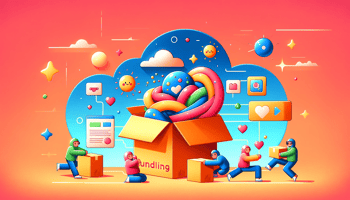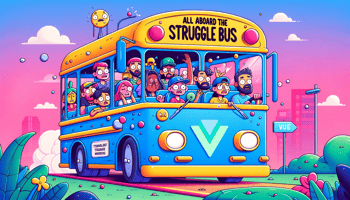Introduction In our previous post we tackled the challenges of moving to Vue 3 and touched on the...
Will Artificial Intelligence take over?
It's a new month, which means it’s time to introduce you to a new topic. This month, Faslet will be focusing on all things tech, kicking the month off with Artificial intelligence.
A few weeks ago, we asked our followers on LinkedIn what their thoughts were on AI.
Will there come a time where AI will take over all jobs or are we safe for a few more decades?
50% of people think that AI will partially take over. 17% think AI will completely take over over the years and 33% are convinced that they will be able to work for their employer for a long time to come, because AI won't stand a chance.
Where one does not lie awake over this topic, the other gets sleepless nights. Will it happen? Will AI take over?
What is AI?
AI or Artificial Intelligence is the science that deals with creating an artifact that exhibits some form of intelligence. An artifact is an artificial phenomenon, such as a weather radar, X-rays, etc.
We have been warned for a while that a time will come where AI will take over the world. A research done by PwC indicates that by mid-2030, 30% of the professions will be taken over by machines. While technology ensures that this number will continue to increase, there are still plenty of industries that will continue to require human labor.
To what extent should we fear that AI will take over the world?
We cannot ignore the fact that AI has fundamentally changed and improved our lives. For example, our cities and countries are more connected, our homes are smarter because of Siri and Alexa, and the way we do business is much more efficient.
Still, we believe that AI will only change the part of our world that can be automated, including primarily jobs in more structured and predictable conditions such as factories or warehouses. Machines are being programmed that allow them to automate certain behaviors and tasks, but they do not yet have the cognitive skills and critical thinking abilities of humans that are needed to perform subtle or more complex actions.
When it comes to the unique human traits and qualities, AI still falls short.
AI in Fashion
Many people believe that AI and technology will be the downfall for many things, but those of the fashion industry strongly believe that there is always room for improvement for them, which AI can bring forward.
For example, AI reduces the number of errors, as Faslet does. We have developed a size advice solution that always advises customers of the right size.
LaLaLand.ai too generated AI fashion models for online retails, which enables the presentation of collections on various models. Both tools ensure that customers are convinced of their purchase, which ultimately results in fewer returns for the retailer, therefore also lower costs and less CO2 emissions.
Let's give examples of professions where AI will never be able to take over:
In surgery:
AI has a strong presence in the medical field. Since an unhealthy lifestyle will eventually lead to higher healthcare costs, AI is there to improve the quality of care. AI offers data and insights about people’s medical conditions, tailored advice and active support. However, surgery is still better off in the hands of a professional. Surgeons are trained on their fine motor skills and the ability to perceive and assess each individual situation.
HR-Specialists:
In both surgery and HR, AI is used extensively, but again AI falls short of the personal contact and healthy relationships that HR specialists build with employees and potential candidates.
Advocacy:
As in the legal profession, creative thinking skills are key. Every situation needs its own way of perceiving, assessing and resolving. Think of the lawyers in difficult situations, who must do everything they can to get their client out right and fair. No AI can match that talent.
To put it simply, in most situations, artificial and human intelligence is combined in the workflow to empower the humans and achieve a better result than each could individually. A person working alongside a machine or computer adds data to the system to achieve the desired result. This will continue to be a continuous loop over time, with people training, tuning and testing the AI algorithms. It then becomes smarter and more accurate with time, leaving humans more time for other tasks. With human input into the loop, more complex AI systems can evolve into powerful and efficient tools that help humans in everyday and professional life. Better than machines alone & human manual labor alone.
What do you think? Will there come a time when AI will take on all labor?





